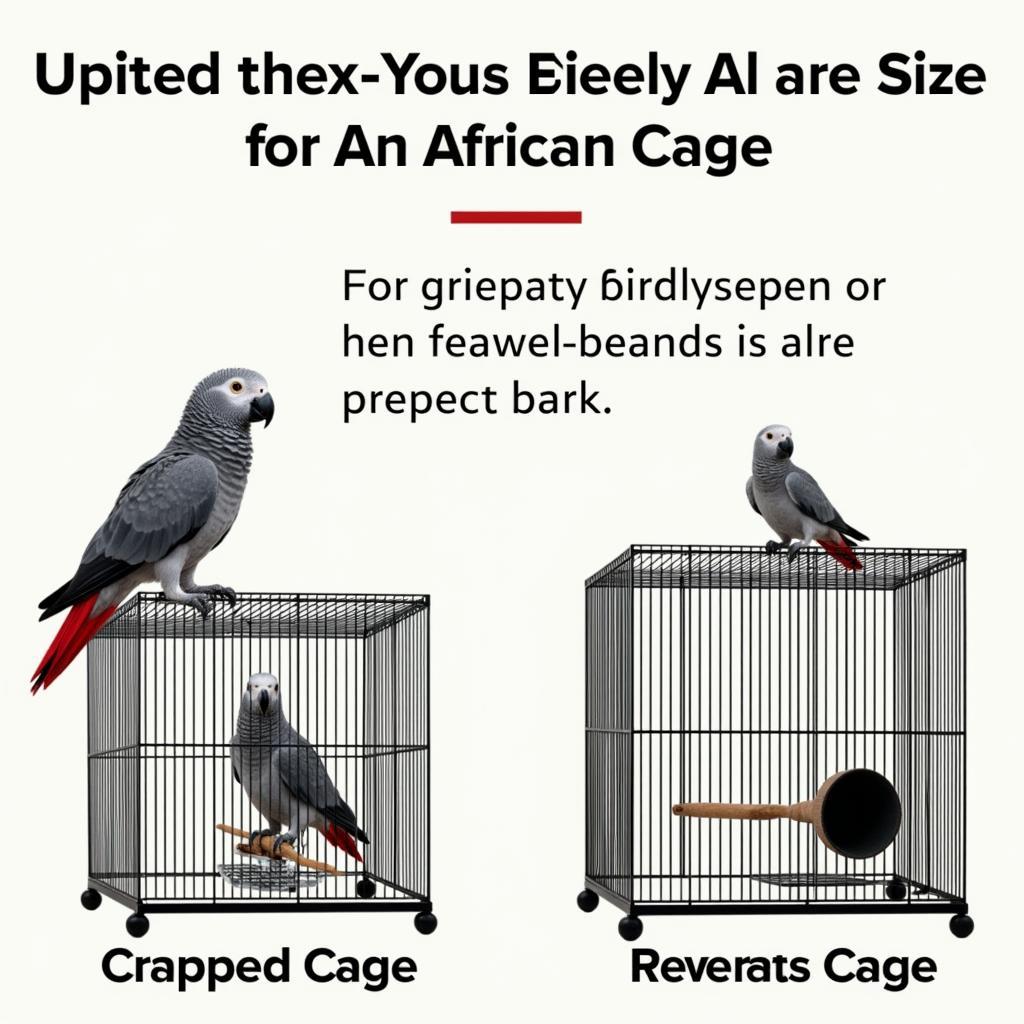Understanding African Grey Barbering Feathers
African grey parrots, renowned for their intelligence and ability to mimic human speech, sometimes exhibit a peculiar behavior known as feather barbering. This involves the bird meticulously chewing, trimming, or otherwise damaging its feathers, often to the point of creating bald patches. While it might seem alarming, understanding the reasons behind this behavior is crucial for concerned owners.
Why Do African Greys Barber Their Feathers?
Unlike molting, a natural process of feather replacement, feather barbering is a behavioral issue often triggered by underlying problems.
Environmental Factors
- Stress and Boredom: A confined environment lacking mental and physical stimulation can cause stress and boredom, leading to feather barbering as a coping mechanism. Imagine being stuck in a room with nothing to do – you might find yourself fidgeting or engaging in repetitive behaviors too.
- Cage Size and Design: A cramped cage restricts movement and limits opportunities for natural behaviors like climbing and flying.
 Comparing Cage Sizes for African Greys
Comparing Cage Sizes for African Greys - Lack of Social Interaction: As highly social creatures, African greys thrive on interaction. Depriving them of companionship, whether from their human flock or other birds, can lead to loneliness and frustration, manifesting as feather barbering.
Medical Reasons
- Parasites and Skin Conditions: Microscopic mites or bacterial infections can cause skin irritation, prompting the bird to scratch and chew at its feathers for relief. Imagine having an itchy sweater you can’t take off – you’d instinctively try to scratch the itch.
- Nutritional Deficiencies: A diet lacking essential vitamins and minerals, particularly those crucial for feather health, can lead to weak, brittle feathers that the bird might pluck or chew.
- Underlying Medical Conditions: In some cases, feather barbering can be a symptom of a more serious underlying medical condition like liver disease or hormonal imbalances.
Addressing Feather Barbering in African Greys
Identifying the root cause is essential for effectively addressing feather barbering.
Consulting an Avian Veterinarian
- Comprehensive Check-Up: An avian veterinarian can conduct a thorough physical examination, including blood tests and fecal analysis, to rule out any underlying medical conditions.
- Parasite Screening: Skin scrapings or feather samples can be examined under a microscope to identify the presence of parasitic mites or infections.
Environmental Enrichment
- Spacious Cage: Provide a spacious cage that allows ample room for movement, playing, and exploring.
- Toys and Activities: Offer a variety of stimulating toys like foraging toys, puzzles, and destructible toys that encourage natural chewing behaviors.
- Social Interaction: Dedicate time for daily interaction and playtime with your parrot.
Dietary Adjustments
- High-Quality Parrot Food: Provide a balanced diet of high-quality parrot pellets supplemented with fresh fruits, vegetables, and occasional healthy treats.
- Vitamin Supplements: Consult your avian veterinarian about incorporating vitamin and mineral supplements to address any nutritional deficiencies.
Addressing feather barbering requires patience and a multi-faceted approach. By addressing both environmental and medical factors, you can help your feathered friend regain its beautiful plumage and live a happier, healthier life.
Frequently Asked Questions about African Grey Feather Barbering
1. Is feather barbering common in African greys?
While not uncommon, feather barbering is not a normal behavior and often indicates an underlying issue.
2. Can feather barbering be cured?
Addressing the underlying cause, whether environmental or medical, can often resolve feather barbering.
3. How long does it take for feathers to grow back?
Feather regrowth varies but can take several months to a year, depending on the severity of the barbering and the bird’s overall health.
Need More Help?
For any concerns about your African Grey’s health or behavior, please contact us:
- Phone: +255768904061
- Email: kaka.mag@gmail.com
- Address: Mbarali DC Mawindi, Kangaga, Tanzania.
Our team is available 24/7 to assist you.

